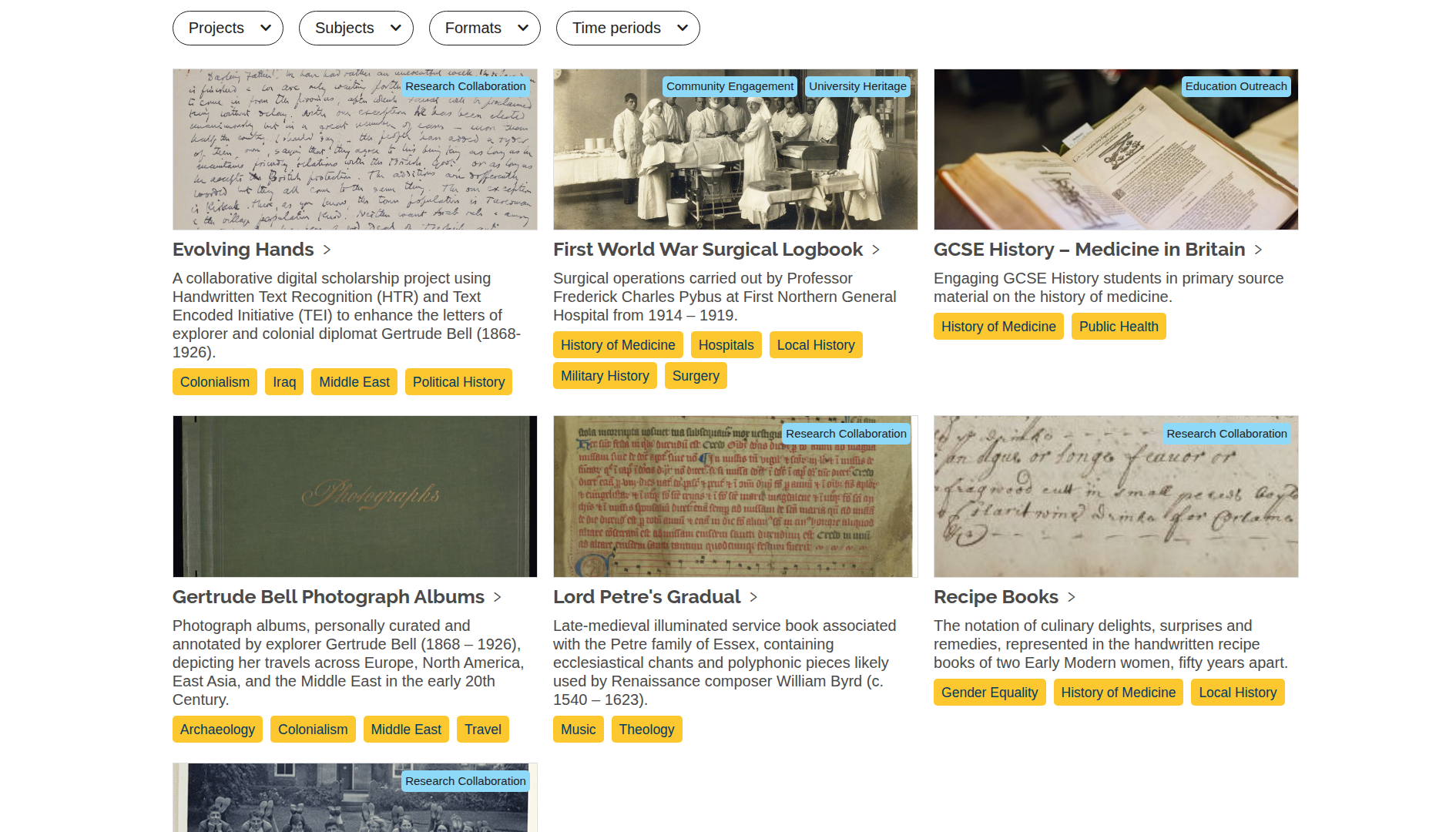‘Digital Showcase’ launched by Special Collections and Archives
Research by SELLL’s Dr James Cummings features as the first ‘Digital Showcase’ in new platform launched by Special Collections and Archives
28 May 2025
Research by SELLL’s Dr James Cummings features as the first ‘Digital Showcase’ in new platform launched by Special Collections and Archives
Newcastle University Library’s Special Collections and Archives has launched a new ‘Digital Showcase’ platform to host digitised images of rare books and other archives that have been enhanced, for example with transcripts following the Guidelines of the Text Encoding Initiative. The site is only in Beta-testing at the moment, but it is hoped that it will be able to host many more special collections and archives related showcases. The site notes that:
“Digital Showcase is a co-curation platform bringing together digital scholarship techniques and interpretations of digitised rare books and archives for online audiences. Curators include heritage professionals, expert communities, educators and researchers. These showcases are intended to engage and encourage further exploration into our collections."

Evolving Hands
One of the first showcases added to the site comes from collaborative research between the School of English Literature, Language, and Linguistics and Newcastle University Library’s Special Collections. The research project “Evolving Hands: building workflows and scalable practices for handwriting” was an Arts and Humanities Research Council (AHRC) and US National Endowment for the Humanities (NEH) funded collaboration between Newcastle University and Bucknell University which explored the use of Handwritten Text Recognition (HTR) and Text Encoding Initiative (TEI XML) to improve accessibility of complex cultural heritage materials. Newcastle University’s case study, led by Principle Investigator Dr James Cummings, used our UNESCO Memory of the World registered Gertrude Bell Archive of digitised letters, diaries, and photographs (over 12,000 unique items) as its source. Gertrude Bell (1868-1926) was an explorer and archaeologist, who travelled and worked extensively in the Middle East. Following the First World War, she became a pivotal figure in the colonial creation of the Kingdom of Iraq as an advisor to the colonial British Government, cementing her significant but contested legacy.
Special Collections curated a selection of twenty handwritten letters from the Gertrude Bell Archive covering the summer of 1921 and the lead up to the coronation of King Feisal I of Iraq for use in Evolving Hands. The letters cover a crucial period in the formation of the state of Iraq, with eye-witness accounts of political diplomacy and colonialism in action from the heart of the British Administration in Baghdad.
Readers can choose a letter written by Gertrude Bell, and in the IIIF-compatible image viewer they are presented with a side panel of information where they can toggle an ‘Enhanced Transcript’ which provides links and help tooltips to explain names of people, places, and organisations, as well as editorial notes. These enhanced transcripts are outputs from the Gertrude Bell case study for Evolving Hands, which improved workflows for library staff to undertake Handwritten Text Recognition and transform the output into edited TEI XML. To suggest your own Digital Showcase visit the Newcastle University Special Collections and Archives pages. Newcastle researchers interested in learning more about the Evolving Hands project or the Text Encoding Initiative can contact Dr James Cummings.
